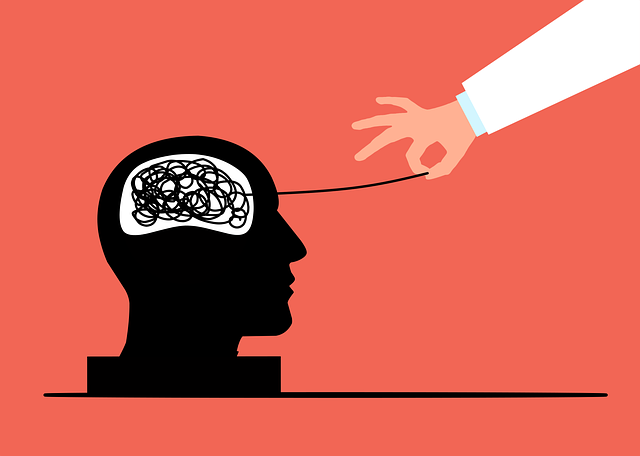Navigating loss, grief, and dissociative disorders can be challenging, but Arvada Dissociative Disorder Therapy (DDT) offers specialized support. Integrating various therapeutic modalities, DDT provides personalized treatment plans to address the complex interplay between grief, trauma, and dissociation. Through evidence-based practices like CBT, mental wellness journaling, and burnout prevention, this approach fosters healthier coping mechanisms, enhances mental health awareness, and builds resilience among individuals affected by severe or traumatic loss. Professional guidance from therapists with cultural competency ensures safe spaces for exploring emotions and developing tailored coping strategies, enabling clients to process grief healthily and discover inner strength.
Loss, grief, and bereavement are powerful emotional journeys that can profoundly impact individuals. This article explores these complex processes, offering insights into understanding and navigating them healthily. We delve into specialized therapies like Dissociative Disorder Counseling in Arvada, addressing unique challenges of complex grief. Additionally, we provide practical coping mechanisms, highlight crucial support resources, and guide you towards professionals who specialize in bereavement counseling.
- Understanding Loss, Grief, and Bereavement: The Emotional Journey
- Dissociative Disorder Therapy: A Specialized Approach for Complex Grief
- Common Coping Mechanisms and Strategies for Navigating Bereavement
- Finding Support: Resources and Professionals for Effective Counseling
Understanding Loss, Grief, and Bereavement: The Emotional Journey

Understanding loss, grief, and bereavement is a vital step in navigating the complex emotional journey that follows. These interconnected concepts—loss referring to the absence or removal of something significant, grief being the intense emotional response to loss, and bereavement denoting the period of mourning—form a crucial aspect of human experience. When faced with the death of a loved one, whether sudden or anticipated, individuals often traverse a labyrinthine path marked by a myriad of feelings, from profound sadness and anger to guilt and confusion.
Arvada dissociative disorder therapy offers valuable support during this challenging time. By integrating evidence-based practices tailored to individual needs, therapists guide clients through the process, helping them make sense of their emotions and develop healthy coping mechanisms. Additionally, engaging in mental wellness journaling exercises can serve as a therapeutic tool for self-reflection and expression. This, coupled with efforts towards burnout prevention and self-esteem improvement, fosters resilience and facilitates healing.
Dissociative Disorder Therapy: A Specialized Approach for Complex Grief

Dissociative Disorder Therapy (DDT) offers a specialized approach to addressing complex grief, which goes beyond traditional counseling methods. This unique therapy is designed for individuals who have experienced severe or traumatic loss, where the grieving process becomes detached from reality, leading to dissociation. DDT aims to help clients integrate their emotions and memories related to the loss, fostering a healthier coping mechanism.
By combining techniques from various therapeutic modalities, mental health professionals in Arvada can create a tailored plan for each client. This approach considers the intricate relationship between grief, trauma, and dissociation, ensuring comprehensive risk management planning. Mental wellness is prioritized through this specialized therapy, offering support to those struggling with complex grief, ultimately enhancing mental health awareness and resilience.
Common Coping Mechanisms and Strategies for Navigating Bereavement

Navigating bereavement can be a challenging and often complex process. Common coping mechanisms that individuals may use include seeking support from friends and family, engaging in self-care practices like exercise or meditation, keeping a journal to express emotions, and participating in rituals or ceremonies to honor the deceased. These strategies help in processing grief and managing intense feelings.
Professional guidance from a healthcare provider skilled in dissociative disorder therapy can significantly aid individuals navigating bereavement. The therapist offers a safe space for clients to explore their emotions, memories, and thoughts without judgment. Through techniques like cultural competency training and empathy-building strategies, the therapist fosters an understanding environment that respects individual experiences. Self-awareness exercises are also employed to help clients process their grief in healthier ways and develop coping mechanisms tailored to their unique needs.
Finding Support: Resources and Professionals for Effective Counseling

Finding support is a vital step in navigating loss, grief, and bereavement. For those dealing with complex emotions or even dissociative disorders, professional counseling becomes essential. In Arvada, there is a range of resources available to provide effective therapy. Licensed therapists specializing in these areas offer a safe space for individuals to process their feelings, whether it’s coping with the loss of a loved one, managing stress, or addressing underlying mental health concerns.
These professionals utilize evidence-based practices tailored to each client’s unique needs. From cognitive-behavioral therapy (CBT) to techniques promoting emotional well-being and inner strength development, counseling sessions can help individuals develop healthy coping mechanisms. By seeking help from qualified counselors, one can find solace, gain perspective, and ultimately, begin the journey of healing and self-discovery.
Loss, grief, and bereavement counseling are essential components of healing after a significant loss. By understanding the unique emotional journey associated with these experiences, individuals can navigate complex emotions effectively. Specialized approaches like Arvada Dissociative Disorder Therapy offer transformative support for those grappling with profound grief. Leveraging coping mechanisms, resources, and professional guidance empowers individuals to find solace and rebuild their lives post-bereavement.












